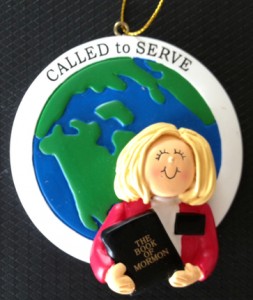 I’m a mom. I get it. Mormon blogger and author Mette Ivie Harrison wants people to be kind to her kids as they serve their LDS missions. In a recent article at Huff Post Blog, “How to Manage Mormon Missionaries,” Dr. Harrison notes,
I’m a mom. I get it. Mormon blogger and author Mette Ivie Harrison wants people to be kind to her kids as they serve their LDS missions. In a recent article at Huff Post Blog, “How to Manage Mormon Missionaries,” Dr. Harrison notes,
“…as a mother whose daughter recently returned from the Houston, Texas mission, I’ve found that I have new insights about what is the best thing to do in various situations [involving Mormon missionaries].”
Dr. Harrison’s new insights seem to center on being nice to children – hers and others’ who end up on LDS missions. For that’s what Mormon missionaries are: they are “practically babies,” she says. Mette the mom paints a plaintive picture for her readers. Mormon missionaries are but children living in a sad and difficult situation. They’re babies; they have looked forward to this mission their whole lives; often they don’t have enough money to even eat; they have to work all the time and don’t get to have any fun; they’re lonely and homesick; they know very little about Mormonism other than what they’ve been told in minimal training, and they don’t want to talk about any other elements of their faith or church; many of these kids don’t even want to be on missions, but go due to cultural pressures. Very sad.
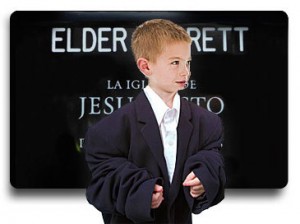 With the picture of these forlorn children in mind, Dr. Harrison offers seven suggestions for people who really don’t want to talk to the missionaries they encounter. Six of her suggestions can be summed up in this way: be honest, thoughtful and kind in telling the missionaries you are not interested in their message. I whole-heartedly agree with Dr. Harrison on these points; kindness, after all, is a fruit of the Spirit (Galatians 5:22). But on Dr. Harrison’s seventh point I ardently disagree. She writes,
With the picture of these forlorn children in mind, Dr. Harrison offers seven suggestions for people who really don’t want to talk to the missionaries they encounter. Six of her suggestions can be summed up in this way: be honest, thoughtful and kind in telling the missionaries you are not interested in their message. I whole-heartedly agree with Dr. Harrison on these points; kindness, after all, is a fruit of the Spirit (Galatians 5:22). But on Dr. Harrison’s seventh point I ardently disagree. She writes,
“You may feel like it’s best to confront missionaries with the ‘truth’ about Mormonism, telling them about Joseph Smith’s multiple wives, or other horrible things you’ve heard about the church. You may think that you’re being kind to them by helping them get out of the ‘cult’ they’re caught in. I really don’t think this is helpful. Most missionaries have grown a pretty thick skin about anti-Mormon stuff and won’t listen to you at all.”
So basically, Dr. Harrison is saying that if you have any problems with Mormonism–if there are reasons you could not become Mormon–don’t tell the missionaries. For example, if you struggle with Joseph Smith’s polygamous and polyandrous affairs (as revealed on the LDS Church’s own website), explaining this to the missionaries would be “anti-Mormon.” Likewise, if you can’t accept Mormonism because you applied the biblical test of a prophet found in Deuteronomy 13:1-5 (for example) to Joseph Smith and discovered that he fails God’s test, conveying this to the missionaries would be “unhelpful.” Indeed, the missionaries won’t listen to you at all. So instead of explaining why you reject Mormonism and the message the missionaries bring, Dr. Harrison suggests that you instead offer a smile and words of encouragement as you send them on their way. Mette the mom wants her kids to have a good 2-year experience, unmarred by discord. She writes,
“I am so grateful for people who treated my daughter well and looked out for her on her mission, non-Mormon and Mormon alike. I don’t particularly care how many people she converted to Mormonism. The experience was a wonderful one for her, and I think it made her more optimistic about humanity, more comfortable in her own skin, more confident talking to strangers, and it gave her a pool of friends who have shared the same experience and whom she will never forget. That’s what I’d like for all Mormon missionaries out there.”
This is definitely Mette the mom talking. She has forgotten the point of a Mormon mission and views the whole thing more like a charm school. In her eyes, it’s not about bringing people into the “one true church”; instead, it’s about teaching Mormon kids self-confidence and poise. It’s making friends and having an “experience” that sticks with them throughout their lives – maybe like other kids who spend their summers before college back-packing across Europe. She wants her kids to enjoy the whole thing and have fun. Like I said: I’m a mom. I get it.
 But as a mom, I have deeper concerns for my kids – there are more important things than having a good time. If my child scrimped and saved to achieve her life-long dream of skiing the Swiss Alps, I would definitely hope that she’d have a good time when she finally went on that trip. But even more than that, I’d hope that she would come home safe and sound. If she was in Switzerland, and was about to ski down a slope that ended over a 300-foot cliff, I would want someone to warn her. And not just warn her, but stop her. I would give anything for someone to save my child’s life – even if it interfered with her fun. I’m guessing Mette the mom would, too.
But as a mom, I have deeper concerns for my kids – there are more important things than having a good time. If my child scrimped and saved to achieve her life-long dream of skiing the Swiss Alps, I would definitely hope that she’d have a good time when she finally went on that trip. But even more than that, I’d hope that she would come home safe and sound. If she was in Switzerland, and was about to ski down a slope that ended over a 300-foot cliff, I would want someone to warn her. And not just warn her, but stop her. I would give anything for someone to save my child’s life – even if it interfered with her fun. I’m guessing Mette the mom would, too.
Now, Dr. Harrison probably doesn’t understand that the young Mormon missionaries are in real spiritual danger. If she did, she would never suggest that those who truly know the narrow way of salvation hide it from these kids in order for them to have a trouble-free mission experience. Mette the mom doesn’t know it, but I do. And many other Christian moms and dads know it, too. For us, we can’t merely offer a smile and words of encouragement while watching these kids ski off a cliff. Because “we are ambassadors for Christ, God making his appeal through us. [So] We implore you on behalf of Christ, be reconciled to God” (2 Corinthians 5:20).
When Mormon missionaries come to Christian homes, we must speak the truth. Yet we are charged to do it in love (Ephesians 4:14-15). When we follow God’s command to teach and correct spiritual error, we are to do it with kindness, patience, and gentleness (2 Timothy 2:24-25). We do this with one goal in mind: that
“God may perhaps grant them repentance leading to a knowledge of the truth, and they may come to their senses and escape from the snare of the devil, after being captured by him to do his will.” (2 Timothy 2:25-26)
Do you see the very real spiritual danger expressed in Paul’s words? There is not a mother alive who would want her child to have a nice, happy, 2-year challenge-free mission – but in the process forfeit her soul (see Matthew 16:26).
Mette, as one mom to another, I promise I will do my best to keep these precious children from skiing off a cliff. Though it may get in the way of their fun, I promise I will always–prayerfully and lovingly–strive to help them find that difficult, narrow gate that leads to eternal life (Matthew 7:14).

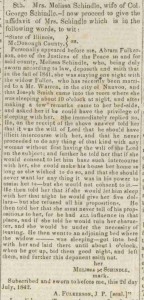 “8th. Mrs. Melissa Schindle, wife of Col. George Schindle. — I now proceed to give the affidavit of Mrs. Schindle, which is in the following words, to wit:
“8th. Mrs. Melissa Schindle, wife of Col. George Schindle. — I now proceed to give the affidavit of Mrs. Schindle, which is in the following words, to wit: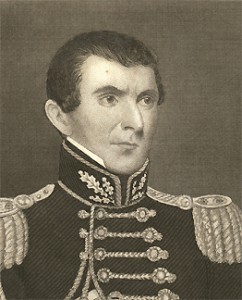
 As thirteenth President Ezra Taft Benson is reported to have said in a church manual that is being used twice a month throughout 2015 in adult Sunday classes, “The most important prophet, so far as we are concerned, is the one who is living in our day and age. This is the prophet who has today’s instructions from God to us.” (Teachings of Presidents of the Church: Ezra Taft Benson, 149). Criticizing those who disagree with the prophet, Benson also wrote, “The two groups who have the greatest difficulty in following the prophet are the proud who are learned and the proud who are rich. The learned may feel the prophet is only inspired when he agrees with them; otherwise, the prophet is just giving his opinion-speaking as a man. The rich may feel they have no need to take counsel of a lowly prophet” (Ibid., 138).
As thirteenth President Ezra Taft Benson is reported to have said in a church manual that is being used twice a month throughout 2015 in adult Sunday classes, “The most important prophet, so far as we are concerned, is the one who is living in our day and age. This is the prophet who has today’s instructions from God to us.” (Teachings of Presidents of the Church: Ezra Taft Benson, 149). Criticizing those who disagree with the prophet, Benson also wrote, “The two groups who have the greatest difficulty in following the prophet are the proud who are learned and the proud who are rich. The learned may feel the prophet is only inspired when he agrees with them; otherwise, the prophet is just giving his opinion-speaking as a man. The rich may feel they have no need to take counsel of a lowly prophet” (Ibid., 138).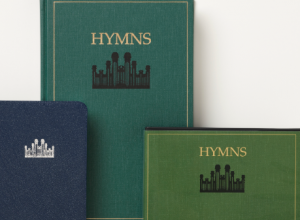 The September issue of the Ensign magazine includes an
The September issue of the Ensign magazine includes an 

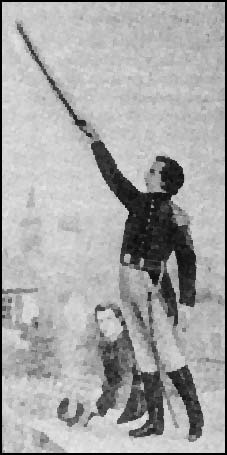 In Mormonism, those are all admirable goals. As President Ezra Taft Benson, who is quoted five times in this one-page article, stated, “The antidote for pride is humility—meekness, submissiveness. It is the broken heart and contrite spirit.”
In Mormonism, those are all admirable goals. As President Ezra Taft Benson, who is quoted five times in this one-page article, stated, “The antidote for pride is humility—meekness, submissiveness. It is the broken heart and contrite spirit.”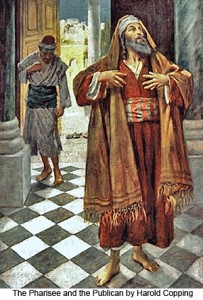 parable Jesus told about the publican and the Pharisee who went to the temple to pray. Said the Pharisee:
parable Jesus told about the publican and the Pharisee who went to the temple to pray. Said the Pharisee: